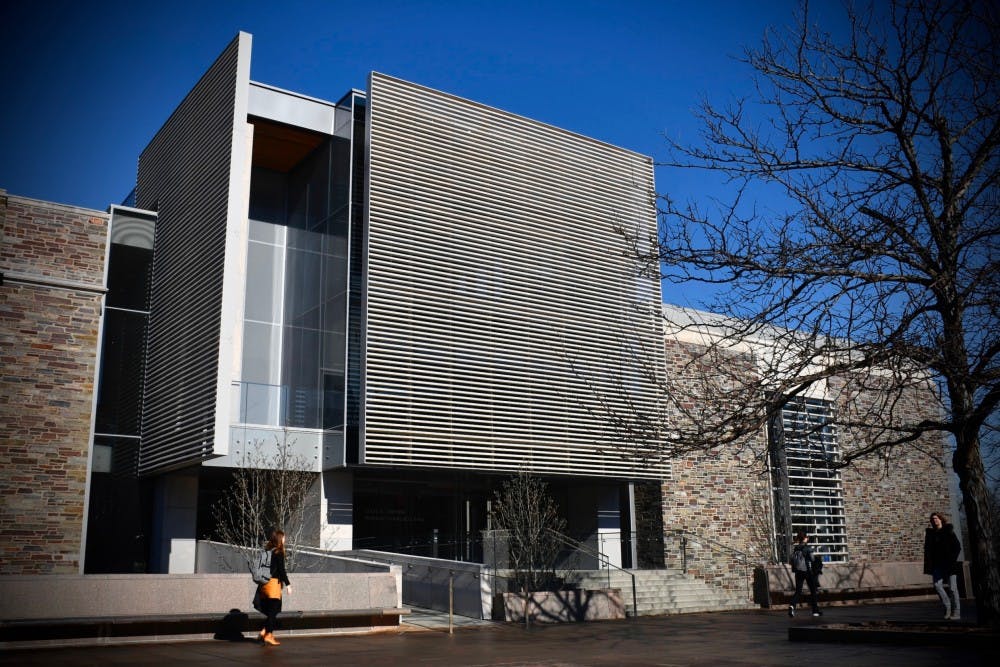After the Trump Administration banned travel from Europe, the University has instructed students studying abroad on the continent to return home as soon as possible.
On Wednesday night, President Donald Trump announced the suspension of “all travel from Europe from the United States for 30 days,” beginning on Friday at midnight. The Department of Homeland Security later clarified that this ban applies specifically to 26 “Schengen Area” countries — which are, alphabetically, Austria, Belgium, Czech Republic, Denmark, Estonia, Finland, France, Germany, Greece, Hungary, Iceland, Italy, Latvia, Liechtenstein, Lithuania, Luxembourg, Malta, Netherlands, Norway, Poland, Portugal, Slovakia, Slovenia, Spain, Sweden, and Switzerland.
At around 11 p.m. EST, many students studying abroad in Europe received “an urgent update” from Associate Director of Global Safety and Security Kara Amoratis, instructing them to return home immediately.
“While the situation is still unfolding, we are asking that all students currently studying abroad in Europe (outside of the United Kingdom) return to their permanent residence as soon as possible, but in any event before the travel ban enters into effect on Friday, March 13 at midnight,” the message read. “We know that this news is distressing; it is important to act swiftly and try to remain calm.”
In a later email, the University urged students studying in the U.K. and Ireland to also return home, even though the U.S. policy does not bar entry from those countries.
“Currently, the ban does not apply to travelers coming from the U.K.,” the University website notes. “However, we are unsure how long that will remain the case and therefore strongly encourage anyone in the U.K. consider returning home as soon as possible as well.”
Given the timing of the administration’s announcement, students have fewer than two days to pack their bags.
Kyle Barnes ’21, who has been abroad in Budapest, Hungary, said that he “woke up this morning with hundreds of text messages from people freaking out about everything happening.”

“It wasn’t until I opened my email that I realized that I had to leave, too,” he added.
According to The New York Times, Hungary had confirmed 13 cases of coronavirus and no deaths as of noon EST on March 12.
“It’s safer here than it is at home for me, but I still bought a ticket because Princeton said that I really have to,” Barnes said.
After “some” students spending their semester in the U.K. and Ireland “requested to remain,” study abroad adviser Johanna Wagner sent students in those countries an additional notice.

“Again, our recommendation is to return, but if you do choose to stay, you are required to fill out [a] waiver,” the email from Wagner read. “If you are seriously considering this, read through the information carefully and submit it to me via email.”
The form requires students to “voluntarily accept the risks of travel and continued participation” in study abroad — including possible travel restrictions, health screenings, and flight cancellations.
It also requires students staying in the U.K. or Ireland to “release Princeton University, and its affiliated organizations, trustees, officers, employees, and agents from all financial and personal liability for injury, illness, death, monetary loss, or property damage resulting from [a] decision to complete my study abroad program.”
These damages include “without limitation, any claim whatsoever which arises or may hereafter arise on account of any health or medical services rendered [...] in connection with an emergency or health problem during my time participating in a study abroad program.”
University spokesperson Ben Chang told The Daily Princetonian that the University is monitoring the situation and tracking federal announcements and guidelines in real time. Chang added, “[we are] doing our best to ensure we are looking out for the wellbeing of our community wherever it is, here or abroad.”
The original message noted that Princeton’s Office of Global Safety and Security and the Office of International Programs (OIP) are “prepared to help [students] book flights if necessary and have reached out to World Travel at Princeton University for assistance.”
Additionally, though the Trump Administration policy does not apply to lawful permanent residents or any relatives of United States citizens or permanent residents, the University is instructing all students abroad in Europe to act swiftly.
“U.S. citizens will be permitted to enter, however, there are likely to be enhanced screening and quarantine requirements and we are unsure if the quarantine requirement can be carried out at home,” the University Emergency Management website notes.
This comes after an announcement sent on Monday to all students abroad giving them the choice between remaining abroad so long as the country in which they are studying is not at a CDC level 3, returning home — keeping in mind that “academic options [...] may be limited,” and completing courses online if students’ host institutions allow it.
Students abroad were not given the option to return to campus or join the University’s online courses.
“If your host institution cannot offer online courses or a suitable solution for completing coursework, you may need to take a leave of absence from the University for this semester,” the statement noted.
Even in cases where the foreign university accommodates students’ sudden departures, other logistical details are less fixed.
“At least I can still take online classes, but it’s just been a really anxious day because I haven’t been able to know with any certainty where I’m gonna be in the next week, or month, or even three months,” Barnes said. “All I know is that Princeton told me to go home.”
But at other universities abroad, some students — including Wendy Ho ’21, who has been studying in Singapore since January — have already shifted to an entirely digital semester.
“In January, there were a lot of cases, but I think the government has been doing a pretty good job so far,” Ho said. “As soon as there were a few cases of community spread, they immediately went into Code Orange. All of the classes I was taking moved online and they suspended all club activities.”
As of March 12, there have been 178 confirmed cases of COVID-19 in Singapore.
The announcement recommended that students “continue to monitor the Princeton University COVID-19 website and the CDC travel advisories.”
Wednesday night’s travel ban is the third Presidential Proclamation suspending travel from certain countries due to the COVID-19 outbreak. In late January, Trump suspended travel from China. On Feb. 29, travel from Iran was suspended.
This proclamation cites a World Health Organization (WHO) determination that “multiple countries within the Schengen Area are experiencing sustained person-to-person transmission of [the virus which causes COVID-19].”
“As of March 11, 2020, the number of cases in the 26 Schengen Area countries is 17,442, with 711 deaths, and shows high continuous growth in infection rates,” the proclamation reads. “The United States Government is unable to effectively evaluate and monitor all of the travels continuing to arrive from the Schengen Area.”
Vice President Mike Pence later announced that “Americans coming home will be funneled through 13 different airports” and then asked to “self-quarantine for 14 days.”
University students abroad were not the only ones surprised by this announcement. On Thursday, various European Union leaders expressed their disapproval of the travel ban — exemplified by a statement from Presidents of the European Council and the European Commission Charles Michel and Ursula von der Leyen.
"The European Union disapproves of the fact that the US decision to impose a travel ban was taken unilaterally and without consultation," their statement read.
This story is breaking and will be updated as more information becomes available.








